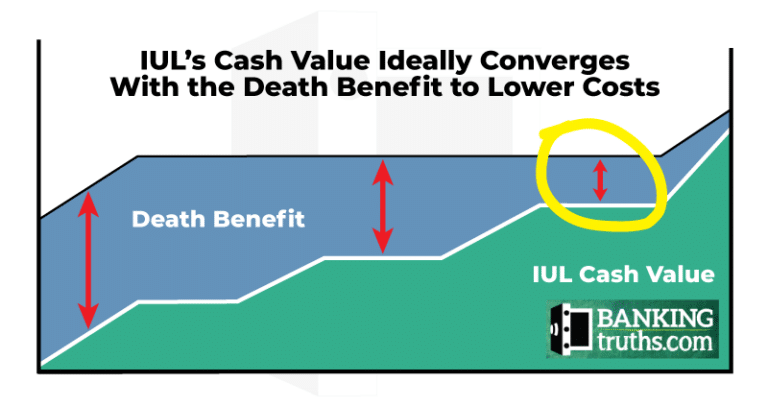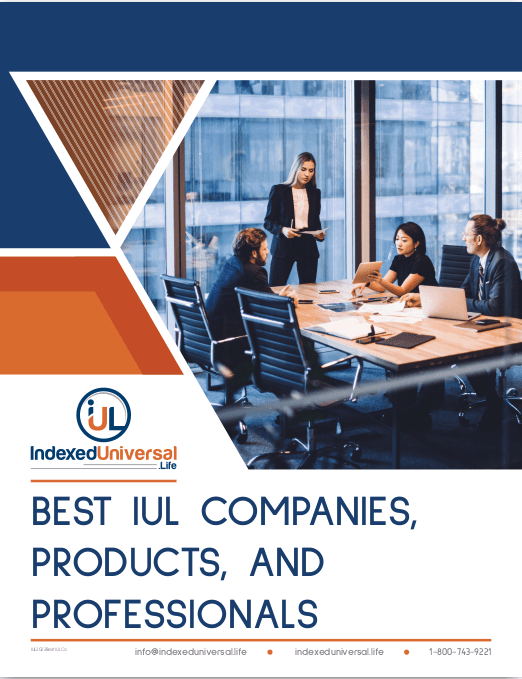All Categories
Featured
Table of Contents
1), often in an attempt to defeat their category averages. This is a straw guy disagreement, and one IUL individuals love to make. Do they compare the IUL to something like the Vanguard Total Amount Securities Market Fund Admiral Show no load, an expense ratio (EMERGENCY ROOM) of 5 basis factors, a turn over ratio of 4.3%, and an exceptional tax-efficient document of circulations? No, they contrast it to some terrible proactively managed fund with an 8% load, a 2% ER, an 80% turn over proportion, and an awful record of short-term resources gain distributions.
Common funds typically make annual taxable distributions to fund owners, even when the value of their fund has actually dropped in value. Shared funds not only require revenue coverage (and the resulting yearly tax) when the mutual fund is increasing in worth, however can also enforce revenue taxes in a year when the fund has dropped in worth.
That's not how mutual funds work. You can tax-manage the fund, harvesting losses and gains in order to minimize taxable circulations to the capitalists, yet that isn't somehow going to transform the reported return of the fund. Only Bernie Madoff kinds can do that. IULs prevent myriad tax catches. The possession of common funds might call for the common fund proprietor to pay estimated tax obligations.

IULs are very easy to position to make sure that, at the proprietor's death, the beneficiary is exempt to either earnings or inheritance tax. The exact same tax obligation decrease techniques do not function nearly also with mutual funds. There are numerous, typically costly, tax obligation traps related to the timed acquiring and marketing of common fund shares, traps that do not relate to indexed life insurance policy.
Chances aren't very high that you're mosting likely to be subject to the AMT as a result of your mutual fund distributions if you aren't without them. The rest of this one is half-truths at ideal. While it is real that there is no earnings tax due to your heirs when they acquire the proceeds of your IUL policy, it is additionally true that there is no income tax obligation due to your heirs when they acquire a shared fund in a taxable account from you.
Iul Life Insurance Policy
There are far better means to avoid estate tax obligation problems than purchasing financial investments with reduced returns. Common funds may cause earnings taxation of Social Safety and security advantages.

The development within the IUL is tax-deferred and might be taken as free of tax earnings through finances. The policy proprietor (vs. the shared fund manager) is in control of his or her reportable income, hence allowing them to lower or perhaps eliminate the taxation of their Social Safety and security advantages. This one is great.
Right here's another minimal issue. It holds true if you get a mutual fund for say $10 per share prior to the circulation date, and it disperses a $0.50 circulation, you are then mosting likely to owe taxes (probably 7-10 cents per share) despite the reality that you haven't yet had any kind of gains.
In the end, it's truly about the after-tax return, not just how much you pay in taxes. You're additionally possibly going to have even more cash after paying those taxes. The record-keeping needs for having common funds are considerably much more complicated.
With an IUL, one's records are maintained by the insurance provider, copies of yearly statements are sent by mail to the owner, and distributions (if any) are totaled and reported at year end. This set is likewise type of silly. Naturally you need to keep your tax obligation documents in case of an audit.
Universal Life Insurance Tax Benefits
Barely a reason to buy life insurance coverage. Shared funds are frequently part of a decedent's probated estate.
Additionally, they are subject to the delays and expenditures of probate. The earnings of the IUL plan, on the other hand, is always a non-probate circulation that passes outside of probate straight to one's named recipients, and is therefore exempt to one's posthumous lenders, unwanted public disclosure, or comparable hold-ups and costs.
We covered this set under # 7, yet simply to evaluate, if you have a taxable common fund account, you should put it in a revocable count on (and even simpler, utilize the Transfer on Death designation) in order to avoid probate. Medicaid disqualification and life time revenue. An IUL can provide their proprietors with a stream of revenue for their whole life time, no matter for how long they live.
This is valuable when arranging one's affairs, and converting possessions to earnings prior to an assisted living facility arrest. Common funds can not be transformed in a similar manner, and are usually considered countable Medicaid possessions. This is another stupid one advocating that poor individuals (you understand, the ones that need Medicaid, a government program for the inadequate, to pay for their nursing home) should utilize IUL instead of common funds.
Linked Life Insurance
And life insurance policy looks dreadful when contrasted fairly versus a pension. Second, individuals who have cash to purchase IUL above and past their pension are mosting likely to have to be awful at handling cash in order to ever before qualify for Medicaid to pay for their assisted living home prices.
Chronic and incurable health problem motorcyclist. All plans will enable an owner's simple accessibility to cash money from their policy, frequently waiving any kind of abandonment fines when such people endure a serious health problem, need at-home treatment, or become confined to an assisted living home. Shared funds do not give a comparable waiver when contingent deferred sales charges still apply to a shared fund account whose owner needs to market some shares to money the expenses of such a keep.
Universal Life Insurance Tax Benefits
You get to pay more for that advantage (rider) with an insurance coverage policy. What a good deal! Indexed global life insurance offers death benefits to the beneficiaries of the IUL owners, and neither the proprietor nor the recipient can ever before lose money because of a down market. Shared funds offer no such guarantees or death advantages of any type of kind.
Currently, ask on your own, do you in fact need or want a survivor benefit? I certainly do not need one after I reach economic independence. Do I want one? I suppose if it were inexpensive enough. Naturally, it isn't cheap. On standard, a buyer of life insurance policy spends for real expense of the life insurance policy advantage, plus the expenses of the plan, plus the profits of the insurance provider.
Guarantee Universal Life
I'm not totally certain why Mr. Morais threw in the whole "you can't shed cash" again right here as it was covered fairly well in # 1. He simply wished to duplicate the most effective selling point for these things I suppose. Once more, you don't shed small dollars, yet you can shed real dollars, in addition to face serious opportunity expense because of low returns.

An indexed global life insurance policy policy owner might trade their policy for a completely different plan without activating income taxes. A common fund proprietor can stagnate funds from one shared fund business to an additional without offering his shares at the former (hence triggering a taxable event), and redeeming new shares at the last, commonly based on sales costs at both.
While it is true that you can trade one insurance coverage for one more, the reason that individuals do this is that the initial one is such an awful policy that also after acquiring a brand-new one and undergoing the early, negative return years, you'll still come out in advance. If they were offered the appropriate policy the initial time, they should not have any type of desire to ever trade it and go with the early, unfavorable return years once more.
Latest Posts
Guaranteed Ul Insurance
Equity Indexed Life Insurance
Index Universal Life Insurance Vs Whole Life